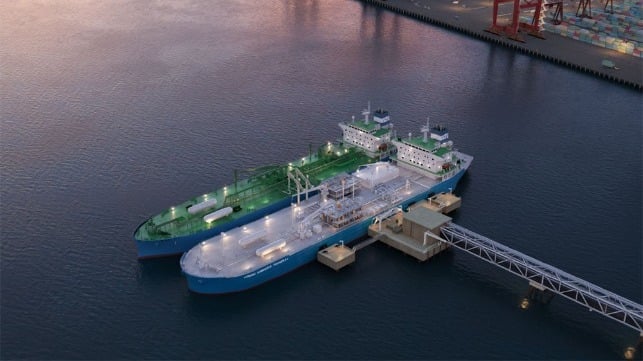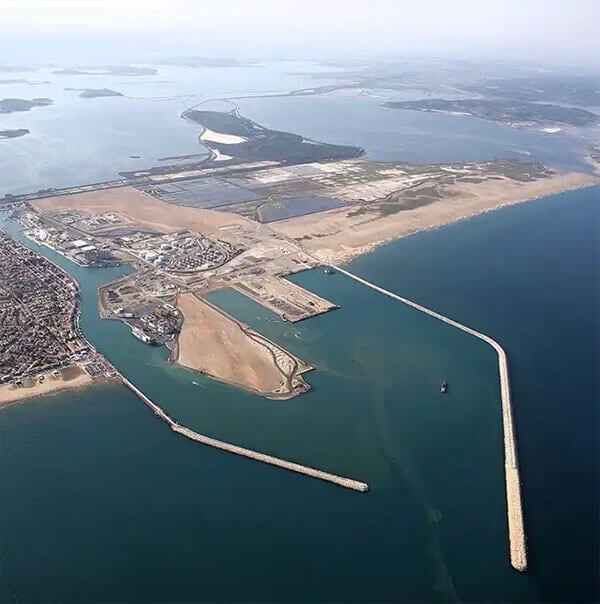Plans Launched to Develop Floating Hydrogen Import Terminal in France

As efforts continue to focus on the transition to new energy, Höegh Evi a leader in floating energy infrastructure announced plans for leveraging the experience with LGN to launch possibly one of Europe’s first hydrogen import terminals. Working with officials developing the new deep-water French Mediterranean port of La Nouvelle, a memorandum of understanding has been signed to study the development of the floating hydrogen import facility.
“With its strategic location and well-established marine infrastructure, Port-La Nouvelle is ideally positioned to become a key entry point for hydrogen and low-carbon fuels. Together we are driving the energy transition forward by establishing a crucial hub for clean energy in Europe,” said Erik Nyheim, President & CEO of Höegh Evi.
Located in the Occitanie Region, the second-largest region in France, efforts are underway for the development of the new port. Construction is expected to be completed and the port to begin operations in early 2026. Uniquely, it will be France’s first privately managed port developed by SEMOP and energy is one of its key target markets.
The current construction project calls for expanding the port from 60 to 210 hectares and increasing the water depth to 16 meters (52.4 feet) to accommodate ships up to 80,000 deadweight tonnes. It will be France’s third-largest Mediterranean port with new terminals, an area devoted to offshore floating wind turbine assembly, and heavy lift quay.

First phase of the expanded Mediterranean port is due to enter service early in 2026 (SEMOP Port La-Nouvelle)
The addition of a hydrogen terminal at Port-La Nouvelle they said will accelerate the shift to clean energy in Europe and has the potential to become a vital hub for importing large volumes of hydrogen. The plan expects the hydrogen will be imported from producers located in the Middle East, North Africa, and the Americas.
In collaboration with European projects such as the HySoW Hydrogen and the gas pipeline operator Teréga, Hoegh and SEMOP also envision the floating import terminal will connect Port-La Nouvelle to major hydrogen transport infrastructures, thereby strengthening the industrial and energy attractiveness of the Occitanie region and promoting job growth.

that matters most
Get the latest maritime news delivered to your inbox daily.
“The port of Port-La Nouvelle is eager to accommodate new types of traffic,” said Hans Kerstens, CEO of SEMOP Port-La Nouvelle. “In recent years, the port of Port-La Nouvelle has made significant investments to expand and prepare the port for the future. Our focus is to become an enabler in the green energy transition.”
The terminal will facilitate the import of up to 210,000 tonnes of hydrogen per year as early as 2030, according to the project timeline and dependent on the readiness of France’s hydrogen pipeline. The partners are now collaborating on a feasibility assessment and design of the infrastructure solution within the port.
